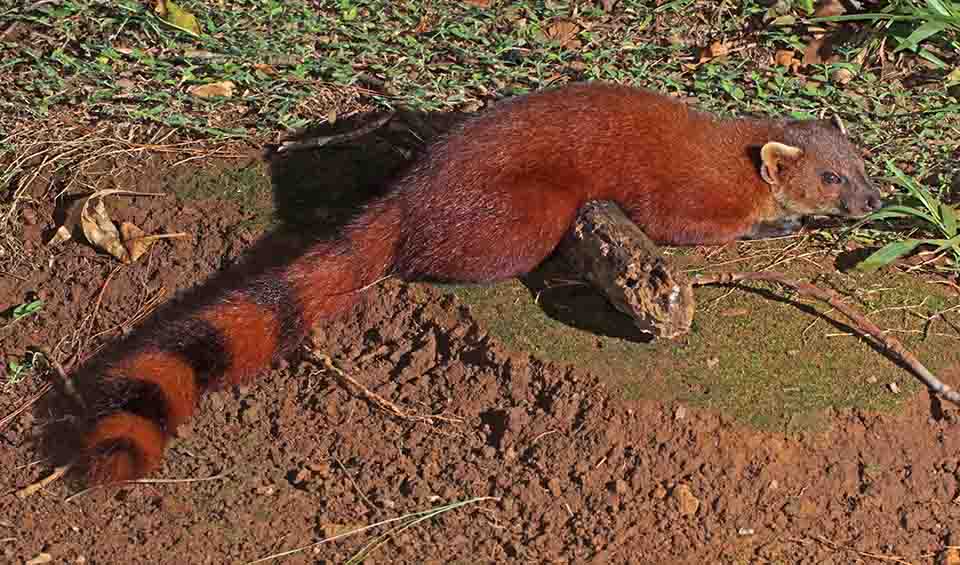Eupleridae – Euplerids
Madagascar's carnivores are characterized by slender bodies, tiny heads, and pointed snouts
Eupleridae, a family of mammals endemic to Madagascar, exhibits a diverse array of species known as Malagasy mongooses or euplerids, each with its distinct characteristics. This family is unique among predatory animals, with members that range from the cat-like fossa to the mongoose-like fanaloka and falanouc. Their bodies are generally slender, with small heads and elongated snouts that assist in foraging and hunting. Euplerids often display coats of soft grey or brown fur, sometimes embellished with patterns of spots or stripes that provide camouflage within their forested and usually dense habitats.
These animals have a varied diet, preying on a range of smaller creatures, such as birds, reptiles, amphibians like frogs, insects, and other small mammals. This opportunistic feeding strategy is key to their survival, especially in the diverse ecosystems of Madagascar, where food availability can vary greatly.
Euplerids, like other carnivores, possess exceptionally acute senses. They rely heavily on their ability to see, hear, smell, and feel their surroundings, which not only aids in the pursuit of prey but also in avoiding becoming prey. Madagascar’s unique environment has shaped these creatures into adept hunters and survivors.
Communication among euplerids is multifaceted, involving both chemical and auditory signals. They mark their presence and territory with scent markings from specialized glands, leaving behind olfactory messages that can indicate reproductive status, signal territorial boundaries, and help in individual recognition. Their vocalizations are equally important and can range from the eerie screams and moans of the fossa during mating season to the more subtle sounds used for everyday communication.
Given the right conditions, some euplerids can live quite long lives, particularly in captivity. The fossa, the largest euplerid, has been known to live up to 20 years in a protected environment, although their lifespan in the wild is typically shorter due to the challenges they face.
Genera in this family
Madagascar’s apex predator
Despite its name, it is not a true civet
Often mistaken for a mongoose
One of the few predators in Madagascar that can be seen regularly during the day





